Local father dedicates life to combatting, raising awareness of human trafficking
Courtesy of Operation Underground Railroad
Looking toward his fellow undercover operator, Matt Osborne lies on the ground while being arrested in Cabo San Lucas, Mexico, during an operation helping the Mexican law enforcement “bust” a human trafficking crime ring. Osborne works for Operation Underground Railroad, a non-profit organization dedicated to ending human trafficking around the world. Osborne started out as an undercover operator for O.U.R. and now works with the media development and finance teams, leaving most of the operations to new operators.
Waves crashing on the beach, tourists bustling around him, Matt Osborne’s American face attracts more than just trinket vendors in Cancún. Within minutes, a person offers him the sale of girls, human beings.
Osborne works for a non-profit organization called Operation Underground Railroad (O.U.R.) that works to fight human trafficking through education, rescue, aftercare and law enforcement training.
Osborne started his career in the U.S. Central Intelligence Agency where he spent 12 years participating in undercover operations overseas and taking part in tours with the U.S. Department of State.
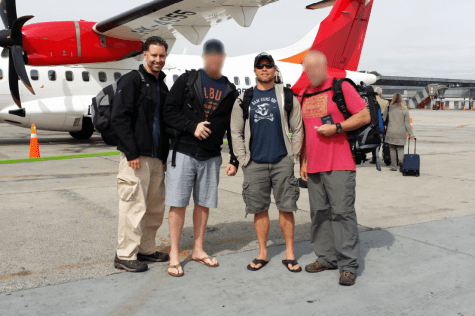
In 2014, Osborne’s friend from graduate school, Tim Ballard quit his job with the Department of Homeland Security and founded O.U.R. Ballard said he felt that as a member of law enforcement he was too limited in the ways he could help trafficking victims overseas.
“He wanted to be able to help children that weren’t necessarily trafficked through the United States,” Jessica Mass, O.U.R. director of aftercare, said. “Or had somebody that was a buyer that is an American citizen.”
Shortly after founding O.U.R., Ballard asked Osborne to quit the CIA and help him start this new nonprofit.
“And so, I said ‘Wait a sec, Tim (Ballard), you want me to give up the job where Uncle Sam pays me faithfully twice a month, I’ve got healthcare until I die if I stay with the government, salary. Cut all that, and join an organization where I only get paid if the donations come in?’” Osborne said. “And (Ballard) said, ‘Yeah, yeah absolutely.’ So I prayed about it, thought about it, weighed the pros and cons, and I said, ‘Yeah, this is a calling.’”
Osborne said he made the decision to join O.U.R. in 2014 and hasn’t looked back. When he first began, Osborne led operations overseas where his team would work with the host government to aid them in fighting human trafficking at whatever level the country needed. In some cases, Osborne and his team would simply go and find where the traffickers were operating and report that information to the government, and then it would stop there. In other cases, they would actually go undercover as the buyer.
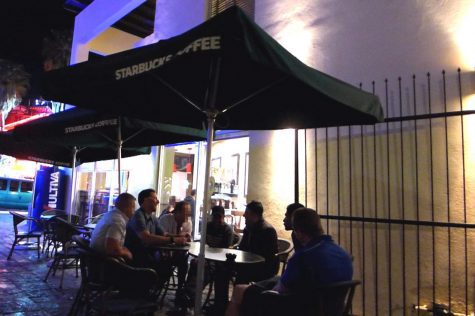
“We’d go into different countries, and within minutes of being on a beach, in a tourist area, wherever, we’re approached,” Osborne said. “They know what people want. And that person approaching us himself may not be the trafficker, but if you show that you might be interested in human beings and girls, they make a couple of calls, and within an hour you’re sitting and talking with a trafficker. I’ve done this over 20 times. In every single situation, it’s just that readily available.”
The reality of Osborne’s work fighting human trafficking is that every mission he participates in, he said he looks real evil in the face to fight for the rights of others and to save children from a life of slavery.
“I’ve sat across the table, negotiating with men and women,” Osborne said. “They’re negotiating with me — just a total straight face, no soul, no nothing. It’s all about greed. And, they’re negotiating the freedom, sometimes the lives of human beings as if they’re talking about a sack of potatoes. They go, ‘Here’s how much it weighs. Here’s how much it costs. This is what it will do, etc. I think that was a big surprise — how evil people are.”
Going into the heart of these trafficking rings is a safety risk for Osborne and his team, not only because they are around armed men and women, but that they are undercover in a country that is not their own.
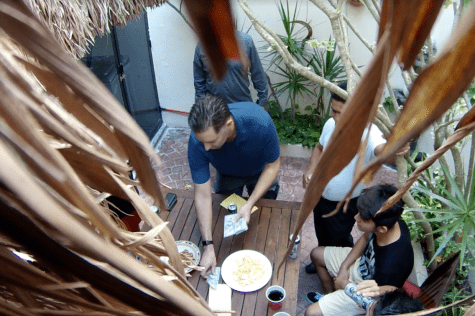
“We have to operate, targeting the bad guys, but also, one eye in the back of our head, so we make sure we’re not being targeted, as well, make sure we’re not being followed,” Osborne said. “Then you have the good guys that may not be the good guys. What if the authorities themselves, the police, are in with the traffickers?”
After what could be days or weeks of negotiation, Osborne’s team will host a “party” where the traffickers meet them in a set location to finish the deal and bring the children who the traffickers believe are being bought. But at this “party,” the law enforcement will arrive and step in, saving anywhere from just a few to possibly hundreds of trafficking victims.
“We get arrested, as well. I’ve been arrested nine times in five different countries. And each time, you’re being thrown down because we’re playing the role of the buyers, and so when the cops come in, the bad guys can’t know that we were in on it because they could easily call and text you know ‘Hey, it was a setup. The Americans were in on it.’ And, we’re in danger until we’re actually at the airport, on the plane and out.”
While Osborne participated in these operations, he had a family at home, who said they live every day with concerns that their father and husband may not return.
“The first few times it was a little nerve-racking,” Osborne’s wife Kari Osborne said. “I can still remember being at a dinner where I was waiting for them to get the all-clear. I can still picture myself that day, praying, and also trying to distract myself all day long. There’s just nothing like waiting for a text that says ‘All clear, we are safe,’ and then you change your attitude to prayers of thanks.”
After an operation is over, and the operators leave the country, O.U.R. doesn’t just abandon those rescued to the mercy of their country’s governments or leave them to survive on their own. They bring in an aftercare team, whose members have an extensive network of facilities in 29 different countries that they work with and assist in funding to help transition trafficking victims into a safe life.
“We primarily ask what the specific aftercare home needs, and what the survivors need,” Mass said. “We try to never come in with the mentality that we are the Americans that know what’s best for somebody else in another country. Our heart is to come in as servants and spend a lot of time listening before doing any type of movement or acting.”
But O.U.R. ‘s aftercare program does more than just put victims in a safe place and make sure that they are cared for, they often continue to support the victims for years and make sure that they get a chance to follow their dreams and live happily.
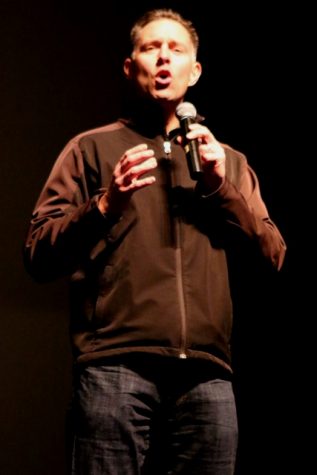
“I have been able to help rescue a woman down in Mexico,” Matt said, “All she wanted to do was be a chef. And, so our donors got the money together to have her take classes from one of the best chefs in all of Mexico. So, she was able to learn cooking.”
After participating in operations regularly for several years, Matt began to be seen frequently in the media and became at risk for discovery in undercover operations, forcing him to change his role at O.U.R.
“I still do the undercover from time to time in a few select countries,” Matt said. “But I’ve now morphed into doing media development and finance, and then we have additional undercover operators who go undercover and do the rescues.”
As he continues to fight human trafficking and spread awareness of its existence and dangers, Matt said that to stop trafficking young people need to become part of the solution and not the problem.
“We all agree that real men don’t buy human beings,” Matt said. “We all stand up to be men with more. If we can set the example, then in our county, our state, our country, our world, the supply would dry up so fast.”
Your donation will support the student journalists of Prosper High School. Your contribution will allow us to purchase equipment and cover our annual website hosting costs.
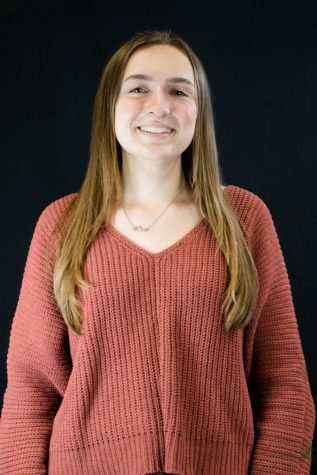
Honors & Awards:
2021 Online Tops in Texas 9th place
Dallas Morning News National High School Competition 1st place
Photographer Of The Year Prosper High School 2019-2020, 2020-2021
National Scholastic Press Association (NSPA) Best of Show Awards 4th place podcast
Southern Interscholastic Press Association (SIPA’s) Best Writing Contest 2nd place blog
Interscholastic League Press Conference 2021 Individual Achievement Awards:
1st and 2nd: Photo Slideshow
Honorable Mention: Student Life Photo
3rd: Photo Portfolio
Honorable Mention: Sports Feature Photo
3rd: Sports Action Photo
3rd: Feature Photo
2nd and 3rd: In-Depth News/Feature Package
Interscholastic League Press Conference 2020 Individual Achievement Awards:
Honorable Mention: Photo Slideshow
Honorable Mention: Photo Portfolio



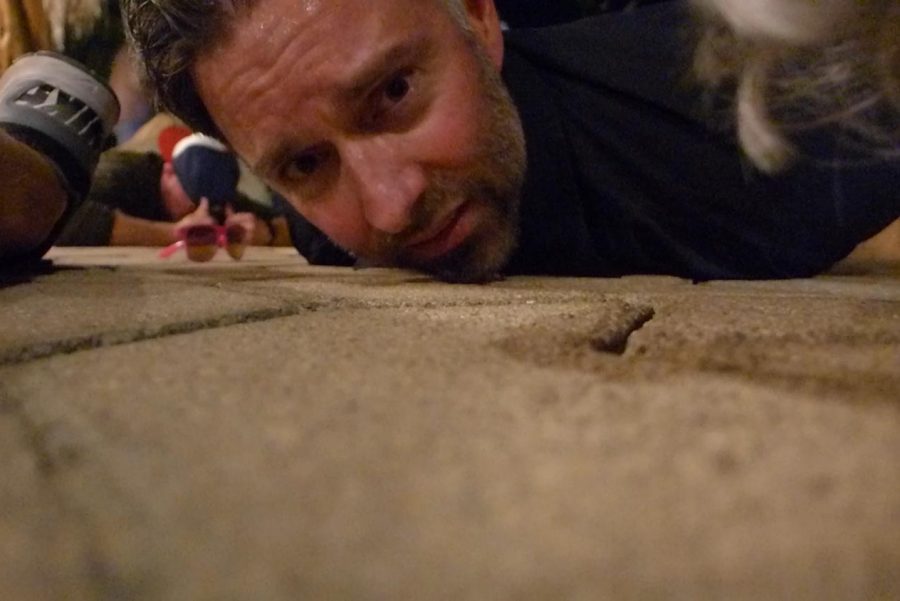
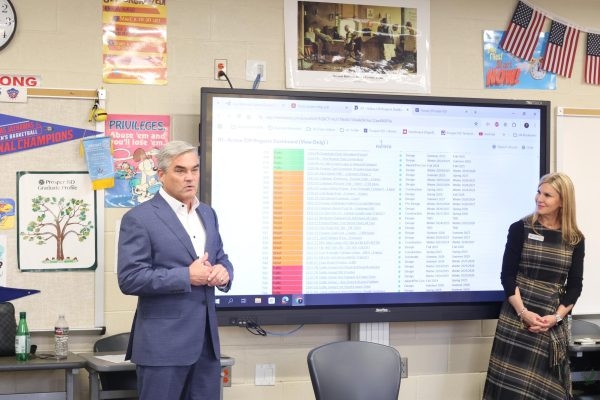
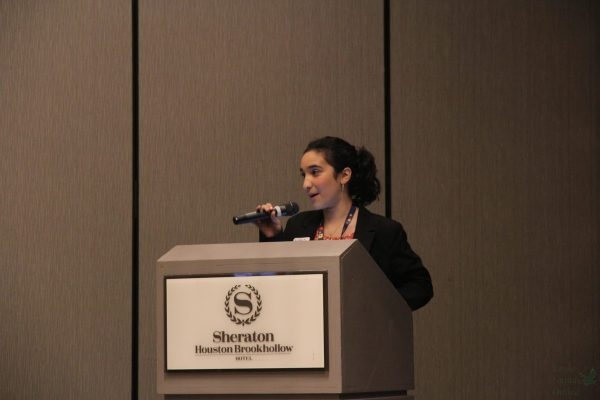

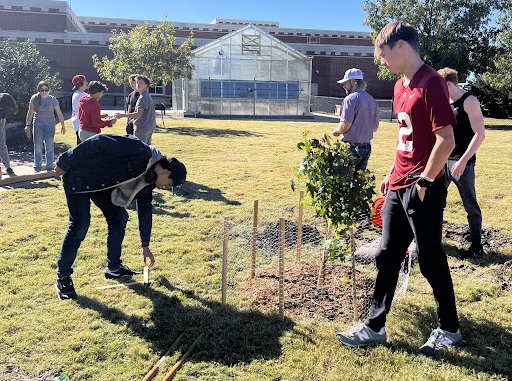


A • Feb 24, 2021 at 10:54 am
Seriously?? Did you not know that these people lie about saving and protecting children, and they won’t even save the children in their own church that are being sexually abused?
These people are very sick, very twisted people who are playing on people’s fears and ignorance about all this, to make themselves rich and feed their very sick egos.
https://americancrimejournal.com/operation-underground-railroad-retains-controversial-firm-kirton-mcconkie-threatens-legal-action-against-acj/
https://www.vice.com/en/article/k7a3qw/a-famed-anti-sex-trafficking-group-has-a-problem-with-the-truth
https://americancrimejournal.com/vice-news-exposes-tim-ballards-o-u-r-poster-child-liliana-as-elaborate-scam/
Grace Williamson • Feb 25, 2021 at 8:35 am
Thank you for your comment to us. Christi Norris, the journalist on this story, will investigate these claims.
Lisa Roskens • Feb 25, 2021 at 11:24 am
Aracely, thank you for reading Eagle Nation Online and for your comment. Reporter Christi Norris will be following up on your comments to give her sources an opportunity to reply.
Dave • Feb 3, 2021 at 9:49 am
Great article! Probably the best that I have seen on the subject. Trafficking is not just found in other countries. It is also a huge problem here in the U.S. Thank you for posting and getting the word out!